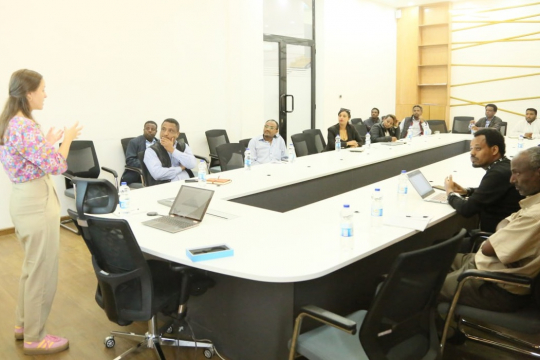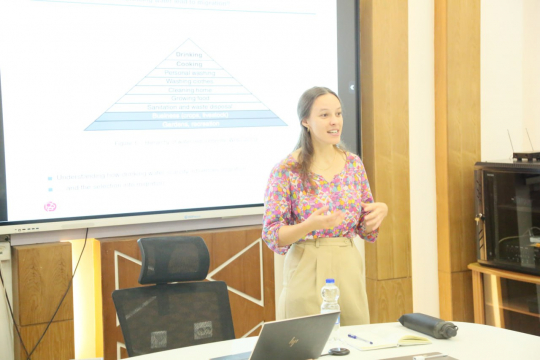EfD Ethiopia (Environment and Climate Research Center, ECRC) hosted a thought-provoking seminar titled Thirsting for Solutions: The Impact of Water Scarcity on Migration. This event, which took place on November 7, convened researchers from PSI to explore the complex relationship between water scarcity and migration patterns, a topic that is becoming increasingly urgent as global water resources become strained.
Lucile Dehouck, a Ph.D. candidate at the Paris School of Economics and a research fellow at Institut Convergences (IC) Migrations, presented her preliminary research on the intersection of environmental issues and migration economics. Her work focuses specifically on water scarcity and its impacts on migration in Sub-Saharan Africa, with a keen emphasis on Ethiopia, where approximately 70% of the rural population lacks access to clean drinking water.
Patterns are similar to forced displacement
Dehouck highlighted that the World Economic Forum has consistently ranked the water crisis as a significant global issue since 2012, underscoring its persistent challenges in Africa. Her presentation outlined three key themes: the critical lack of access to clean drinking water, the exacerbating effects of climate change on water availability, and the resultant implications for human migration. Dehouck findings suggest that inadequate access to water for basic needs can lead to a form of migration that is closer to forced displacement.
Provides insights for policymaking
The seminar concluded with a robust discussion on the urgent need for integrated approaches to address the multifaceted challenges of water scarcity and migration. The researchers emphasized that the findings presented by Dehouck not only contribute to academic discourse but also provide critical insights for policymakers seeking to develop sustainable solutions. Overall, the seminar served as a vital platform for collaboration, highlighting the importance of addressing water scarcity as a key factor influencing migration patterns and community resilience in the face of environmental challenges.
By: Asaye Ketema.

